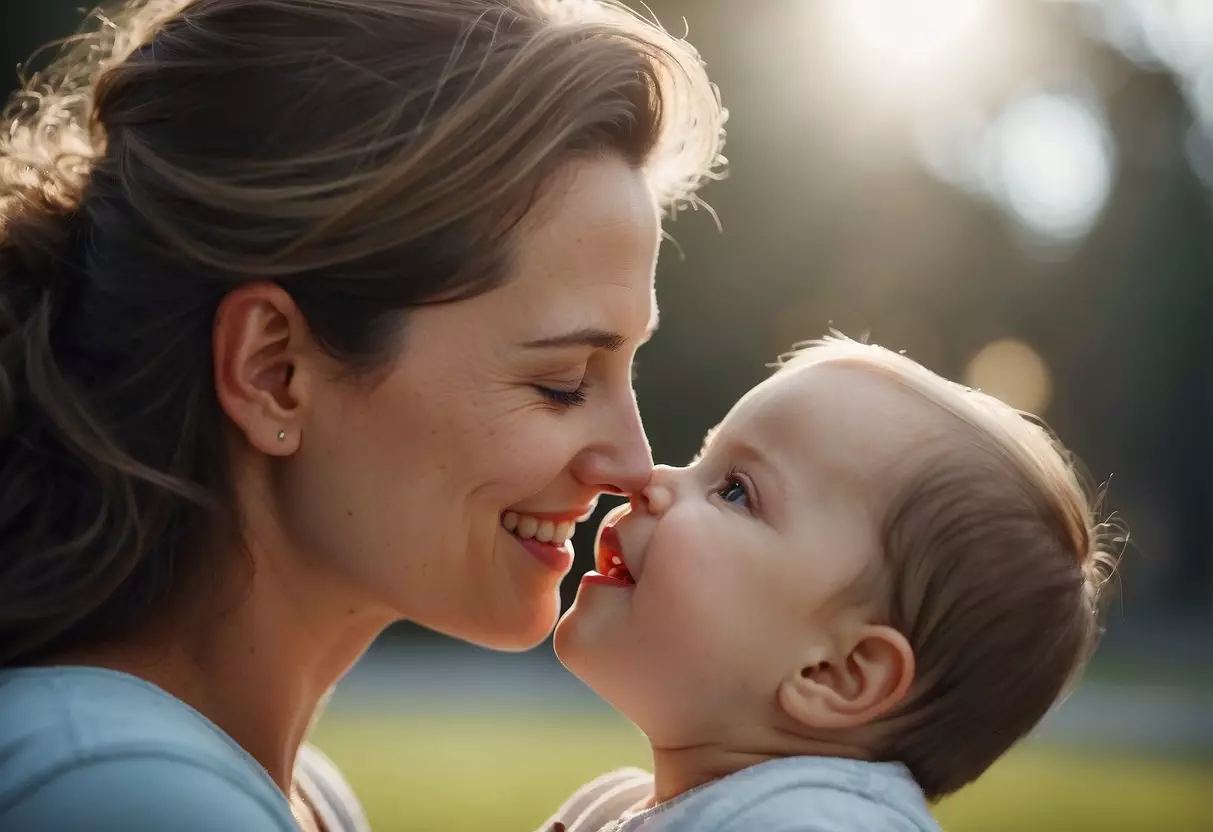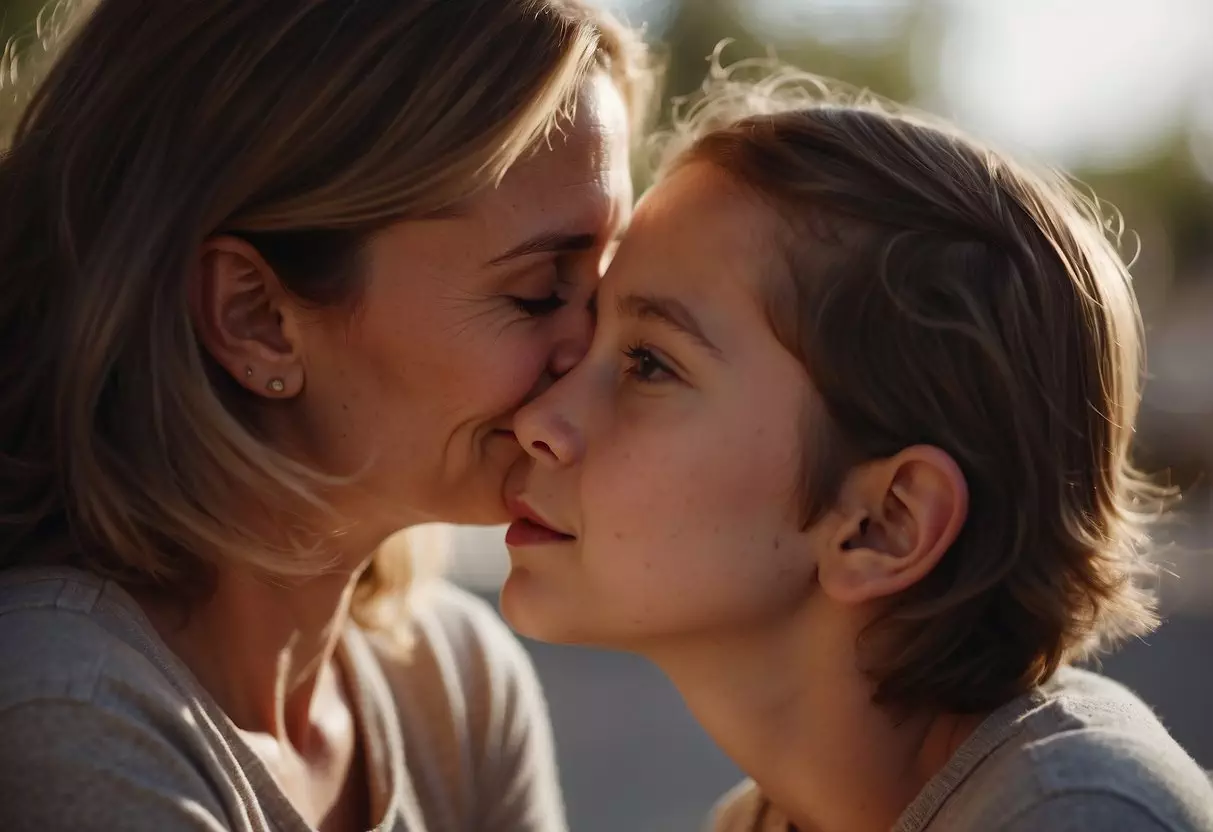Do Babies Like Their Moms’ Kisses? Exploring the Magic of Motherly Affection
Babies are known for their adorable reactions and sweet expressions, but one question many parents have is whether their little ones actually enjoy getting kisses. Yes, babies do like their moms’ kisses because it makes them feel loved and secure.

From the first weeks of life, babies begin recognizing and preferring their caregivers, showing signs of trust and affection. They might smile at you, snuggle closer, or even try to kiss you back. This strong bond helps them feel protected and happy.
The scent and touch of a parent provide comfort and reassurance to a baby. Your baby will likely respond positively to your affectionate gestures, making kisses a special part of your bonding experience. For more insights on baby affection, you can check out this article which covers signs your baby loves and trusts you.
Table of Contents
The Science of Baby Kisses

Understanding how and why babies respond to kisses can deepen the bond between parents and their little ones. Babies learn and grow through these affectionate interactions, which play a vital role in their emotional and social development.
Understanding Attachment and Affection
Babies form attachments through repeated, warm interactions. When you kiss your baby, you provide comfort and a sense of security. This helps in building trust and positive emotions.
Touch is crucial for creating these bonds. Kissing, cuddling, and other forms of physical affection release oxytocin, a hormone that enhances bonding. Babies recognize and associate these actions with feelings of love and belonging, which fosters strong, healthy relationships as they grow.
How Babies Recognize and Learn from Kisses
Babies start recognizing faces and expressions early on. Around 4 to 6 months, they will mimic your facial expressions. When you smile and kiss your baby, they begin to learn these actions as positive and loving gestures.
According to research, affectionate behaviors from mothers contribute to a baby’s ability to be resilient and secure in relationships. Babies learn quickly that kisses are signs of love and comfort, helping them feel safe and cherished.
The Role of Kissing in Emotional and Social Development
Kissing and other affectionate behaviors play a critical role in emotional and social development. Regular displays of affection help babies reach important developmental milestones, such as the social smile, which appears around 6 to 8 weeks.
Showing affection, including kissing, promotes a baby’s emotional milestones. It helps them develop a sense of empathy and understanding. Positive emotions from these interactions contribute to overall well-being, helping your baby grow into a confident and compassionate individual.
For more information on how kisses influence babies’ understanding of relationships, check out how babies recognize close relationships based on physical interactions like kissing.
Health Considerations of Kissing Babies

When it comes to kissing babies, there are important health considerations to keep in mind. Ensuring hygiene, understanding the immune system, and balancing affection with health risks can help protect your little one.
Hygiene and the Spread of Germs
Kissing can spread germs such as bacteria and viruses. Even if you feel healthy, bacteria from your mouth can be passed to your baby. Infants have weaker immune systems and are more prone to infections.
Another concern is cold sores, caused by the herpes simplex virus. If you have a cold sore, avoid kissing babies, as these can spread and cause serious health issues. Practicing good hygiene by washing hands and avoiding face contact when you’re sick helps reduce risks.
The Immune System and Its Development
Babies’ immune systems are still developing. This makes them more vulnerable to infections. Breast milk provides antibodies that help build your baby’s immunity. Even so, they can still catch viruses like respiratory syncytial virus (RSV).
While the immune system gets stronger over time, it’s important to take precautions until then. Avoid exposure to coughing or sneezing individuals, and keep babies away from large groups when possible. These steps help in supporting their developing immune system by minimizing unnecessary exposure to pathogens.
Balancing Affection and Health Risks
You want to show love and affection to your baby, but it’s crucial to balance this with their health. While kisses on the forehead or cheeks from healthy, close family members are generally safe, be cautious.
Avoid kissing your baby if you feel unwell or have a cold sore. Instead, practice other forms of affection like gentle touches and soft talking. This keeps your baby safe from potential infections while still reinforcing your bond.
By understanding the risks and taking mindful steps, you can keep your baby healthy while showering them with love.
Various Cultural Perspectives on Kissing Babies

Kissing babies is practiced differently around the world. These differences highlight unique ways cultures show love and affection to infants.
Global Attitudes Towards Baby-Kissing
In many Western cultures, kissing babies is seen as a common and affectionate gesture. Parents, grandparents, and other family members often kiss babies on the cheek or forehead to show love and care.
In some Asian cultures, public displays of affection, including kissing babies, can be less common. Instead, other forms of affection, such as gentle touches or hugs, are more prevalent to maintain a sense of modesty.
In some parts of Africa and the Middle East, kissing babies is also practiced but can be affected by cultural and religious beliefs. For example, some families may avoid kissing babies on the mouth due to concerns about hygiene or superstitions.
How Different Cultures Show Affection
Cultures have diverse ways of showing love to babies. In Japan, parents might show affection by hugging or cuddling rather than kissing. The focus is on calm and nurturing contact.
In some African cultures, singing and dancing with the baby is a common way to show affection. These cultural practices emphasize connection and happiness.
In Mexico, it is typical for family members to kiss babies on the cheeks as a sign of love and blessing. This practice helps strengthen family bonds and shows the importance of close-knit relationships.
In India, parents might use forehead kisses paired with blessings. This method not only shows affection but also spiritual protection for the child.
Each culture has a unique way of expressing love and caring for infants, reflecting its values and traditions.
Navigating Early Childhood Interactions
Early childhood interactions are crucial for your baby’s development and wellbeing. Understanding your baby’s communication cues and knowing how to comfort them can build a stronger bond and sense of trust.
Decoding Baby’s Communication Cues
Babies communicate in various ways, even without words. They use cues like facial expressions, crying, and body movements. Recognizing these can help you respond appropriately.
When your baby smiles, it often means they are happy or content. Crying can signify different things such as hunger, discomfort, or the need for a hug. Pay attention to their stares or how they react to different sounds. This helps you understand what comforts them or causes distress.
Respond to these signals with actions like talking to them softly or offering a favorite lovey. These responses provide comfort and build trust. Engaging in imitation games, like sticking out your tongue when they do, can also be a fun and reassuring way to interact.
Comforting and Soothing Your Baby
When babies feel anxious or upset, comforting them is essential. Use gentle methods like cuddles, soft talking, or even simply being present. Physical touch, such as gentle hugs, can greatly soothe a young child and reduce their anxiety.
Newborns often feel more secure when wrapped cozily. You can also try rocking them gently or offering a pacifier. Science suggests that these actions mimic the womb’s environment, providing additional comfort.
Observe how your baby reacts to different comforting techniques. Some might respond better to soft music or the presence of a familiar object, while others might need more direct physical contact. By understanding what works best for your baby, you can ensure they feel safe and loved.
